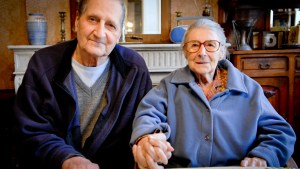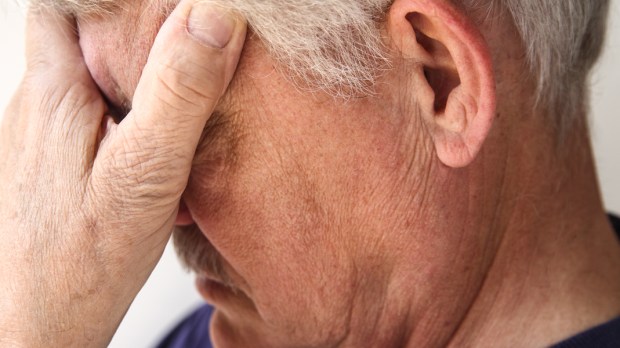“Blessed are those who mourn, for they shall be comforted” (Matthew 5:4).
Hospice contacted me about two weeks after my wife had passed and asked me to join an upcoming bereavement support group. It would be two hours a week for seven weeks. As I write this I have completed two sessions. I was wrong to think I did not need to attend.
At the initial meeting there were five new widows and one new widower (me); interestingly, all of us were Catholic.
In the Church, we say lots of “comforting” things to people in “mourning” but I have discovered that for those of us in the “mournful” state, comfort is sometimes not possible.
From the CCC 989: We firmly believe and hence we hope that, just as Christ is truly risen from the dead and lives forever, so after death the righteous will live forever with the risen Christ and He will raise them up on the last day. Our resurrection, like His own, will be the work of the Most Holy Trinity.
As Catholic/Christians our faith comforts us by instilling in us the certainty that death can be merely a transition to a world filled with perfect happiness. With Jesus, the Blessed Mother, angels and saints, and loved ones gone before us, we will share that heavenly world. There will be no more pain and suffering, no illness, nothing negative.
When we’ve lost someone, we trust in the mercy of God and his promises. Our beloved one has been invited to cross into that place of bliss. Shouldn’t we be jumping up and down with joy? Yes, my loved one has entered the “Eternal Now.”

Read more:
I was at my wife’s deathbed for one reason, and it had almost nothing to do with me
But still, the reality of the death of someone dear can make those instilled certainties seem like nothing more than a bunch of nice words. The loss experienced has had too powerful of an impact. Dead is dead.
Oh yes, we know. We know about heaven and eternity and tears being wiped away. We know all these things. We certainly say we believe these things. Every Sunday we profess our faith, out loud and in public, saying, “and on the third day He arose again.” We’ve told mourners, “Oh, their suffering is over. Now they are at peace”; and “They are in a better place”; and my favorite, “If you need anything, anything at all, don’t hesitate.”
But we are human beings after all. We are victims of Adam’s and Eve’s original sin. Suffering and death is the inheritance of our fallen race. And our revulsion to it is a constant reminder that we are created for life.
I’m growing in my awareness and acceptance of the fact that my grief doesn’t negate the certainties of my faith. I can simultaneously feel the gaping wound of mourning and the quiet assurance of eternity.
And sometimes, both come out.
At Walmart two days after the funeral, I was in the cell phone section because I needed a memory chip. I asked the clerk where they were. He pointed them out and offered to put it in the phone and transfer my photos to it. He opened the picture file and there was my wife smiling at me. I morphed into a babbling spectacle — at Walmart. A nice little crowd watched, but kept their distance.
My bereavement group leader told me my reaction was “normal.”
A man named Leo came to our last meeting. His wife, Rosemarie, had died in January. They had been married for 68 years. Leo sat next to me at the end of the table. He is, at 90, like a little lost pup: “I don’t know what to do,” he told us. “I keep calling her and looking for her and she’s not there. I don’t know what to do.”
Then he pursed his lips, began staring at nothing, and with his eyes wide open, tears began cascading down his face. I took his hand and cried with him.
Didn’t Our Lady feel what he was feeling? Compared to what she had to endure, we have it made. We can’t even compare our grief to hers. And yet, she knew better than any of us what awaited her in eternity. Her faith was even more sure than mine.
Like her, and like her Son, we sons of Adam must pass through the cross to get to the Resurrection. The mourning of Good Friday does not in any way negate our faith in Easter Sunday. It just means we’re human. As human as Jesus, as human as His Mother.
Witnessing death brings us face to face with the journey we all must make. We know of the resurrection and the reward of eternal life. That doesn’t ease the personal impact of death and the grief inside.
CCC 991: belief in the resurrection of the dead has been an essential element of the Christian faith from its beginnings. “The confidence of Christians is the resurrection of the dead; believing this we live.”
And we mourn. And we shall be comforted.
Read more:
Aboard this slow boat my mother-in-law sails

Read more:
A Widow(er)’s Prayer

